December 13, 2011
The federal government might escape some of its widely anticipated fiscal problems over the next few years, but only if it follows the budget path laid out in current law.
At a forum last Friday Mark Zandi, chief economist for Moody’s Analytics, said he was more optimistic than many analysts about the likelihood that Washington would move the federal budget towards greater sustainability. But Robert L. Bixby, executive director of The Concord Coalition, offered a more guarded assessment.
The forum was sponsored by the University of New Hampshire School of Law, the Whittemore School of Business and Economics, the New Hampshire Business and Industry Association, and Concord. It was part of “Next-Generation Matters,” a series of conversations in New Hampshire about the country’s economic future.
Zandi said it was encouraging that both parties had agreed that projected deficits should be reduced by about $4 trillion over the next decade. And while more work is needed, he said, the government is at least on track to achieve a little more than half of that under current law.
Bixby, however, expressed concern about Washington’s “political dysfunction” and emphasized that elected officials had done nothing this year on the key areas of tax and entitlement reform.
After an audience member suggested that the deaths of baby boomers in 20 years would ease the government’s financial burdens, the two speakers – both baby boomers – noted that they exercised regularly.
“I am 52,” Zandi said. “I represent the largest single-year age group. And I’m running every day, buddy.”
The forum was sponsored by the University of New Hampshire School of Law, the Whittemore School of Business and Economics, the New Hampshire Business and Industry Association, and Concord. It was part of “Next-Generation Matters,” a series of conversations in New Hampshire about the country’s economic future.
Zandi said it was encouraging that both parties had agreed that projected deficits should be reduced by about $4 trillion over the next decade. And while more work is needed, he said, the government is at least on track to achieve a little more than half of that under current law.
Bixby, however, expressed concern about Washington’s “political dysfunction” and emphasized that elected officials had done nothing this year on the key areas of tax and entitlement reform.
After an audience member suggested that the deaths of baby boomers in 20 years would ease the government’s financial burdens, the two speakers – both baby boomers – noted that they exercised regularly.
“I am 52,” Zandi said. “I represent the largest single-year age group. And I’m running every day, buddy.”
Read more with New Hampshire Forum: Weighing the Prospects for Fiscal Reform
External links:
Video of the Forum
Economist: Federal Budget Gap Is Nearly Half Way Closed (New Hampshire Union Leader)
StateImpact Blog on the Forum
Last updated: May 11, 2021
Continue Reading
Related Content

News
Ignoring Costs Doesn’t Make Them Go Away

News
Debt Concerns Haunt “Big Beautiful Bill”
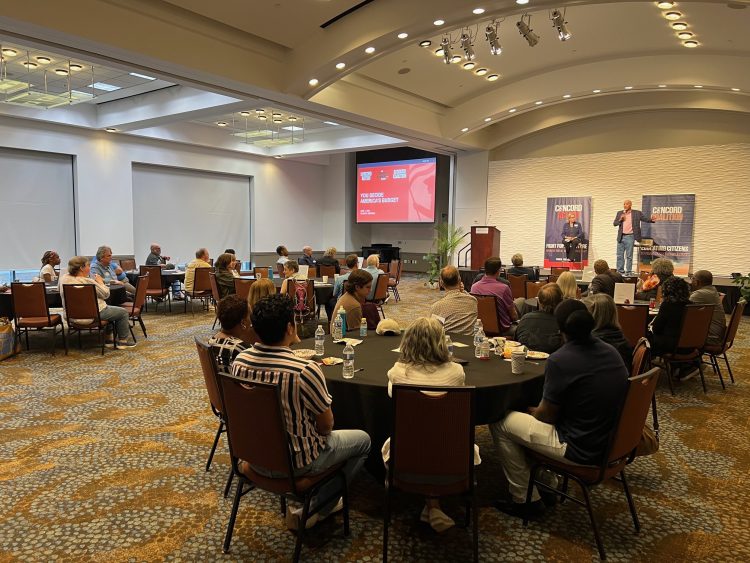
News
Coming to Agreement on the Federal Budget: Budget Exercise in Atlanta with WSB Radio’s Shelley Wynter
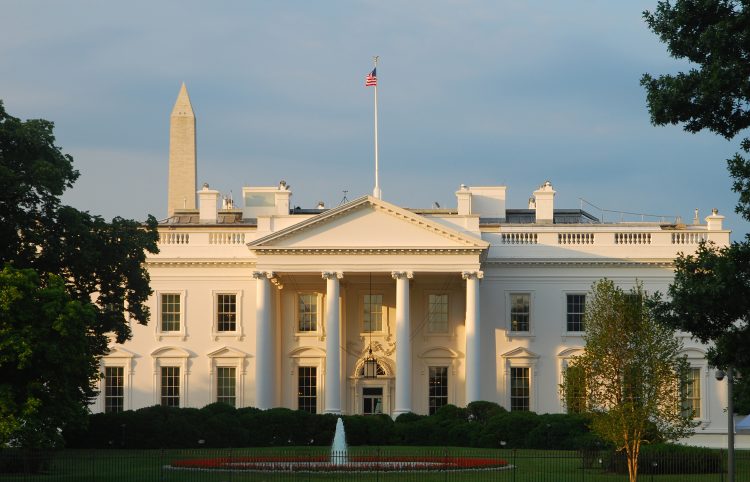
News
What’s Behind the Greenland Pitch?

News
House Republicans Propose Major Overhaul to Student Loan and Higher Education Financing

News
Budget Reconciliation Budget Gimmicks

News
GAO Flags Impoundment Act Violation

News
Moody’s Downgrades United States Credit
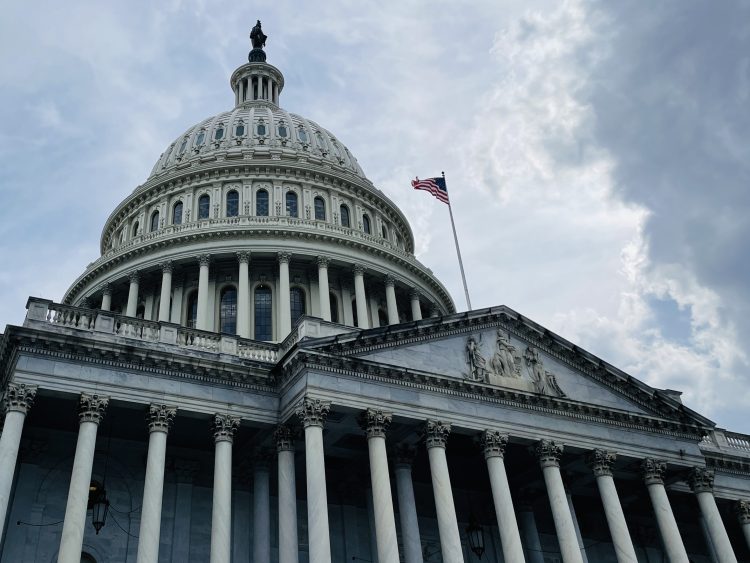
News
The Bumpy Road to Reconciliation

News
Too Many Tax Cuts; Not Enough Offsets
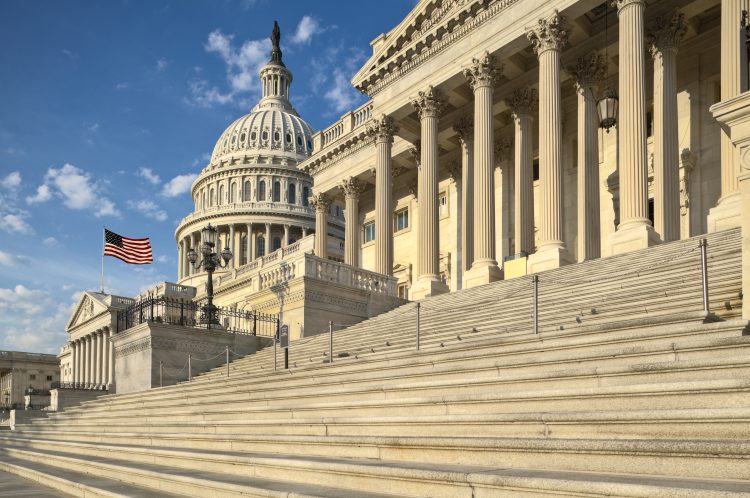
News
Reconciliation Gets Real
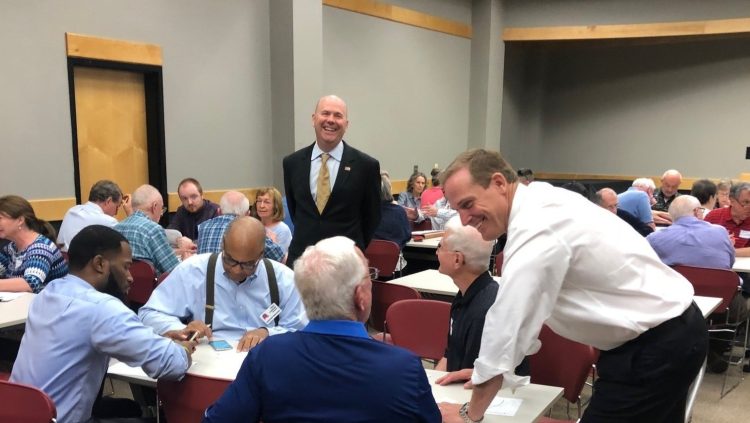
News
My Ride to Warn of Red Ink